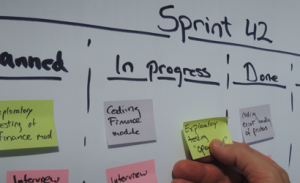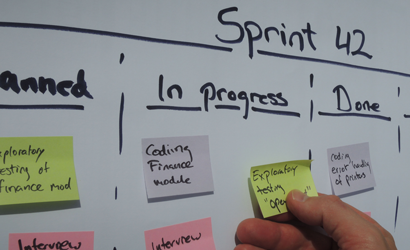 In the modern day world of cutting-edge technology and smartphones, software is a significant business sector where developers need to stay ahead of competitors by developing new code and new applications all the time. But new code involves developing intelligent solutions to problems, and providing customers with a unique product. What options do software developers have for protecting their software products?
In the modern day world of cutting-edge technology and smartphones, software is a significant business sector where developers need to stay ahead of competitors by developing new code and new applications all the time. But new code involves developing intelligent solutions to problems, and providing customers with a unique product. What options do software developers have for protecting their software products?
Software developers have several legal options. The most practical and affordable options for legally protecting software include:
Copyright protection of software
Software can be protected by copyright protection under copyright law and the Digital Millennium Copyright Act (DMCA). Copyright protection exists when the software code is fixed in a tangible means of expression, i.e., as soon as the code is created, but copyright holders are afforded more protection if they register their software with the U.S. Copyright Office. Copyright registration is a cheap, quick and effective means for protecting intellectual property rights in software. Copyright holders are granted exclusive rights to reproduction, preparation of derivative works, distribution and public display or performance of their protected software. In addition to these exclusive rights, the DMCA protects software copyright holders by prohibiting others from circumventing technological controls to gain unauthorized access to the copyrighted software.
Patent protection of software
A utility patent gives its owner the right to exclude others from making, using, offering to sell,
selling or importing the owner’s patented invention. Unlike copyrights, patents protect the
functional application of a software-implemented invention’s underlying inventive idea rather
than merely the software’s written expression. U.S. patents are regulated by the U.S. Patent and Trademark Office (“U.S. PTO”) under the authority of the Patent Act as amended on September 16, 2011 by the American Invents Act. The statutory requirements for obtaining patents on software-implemented inventions are the same as for other inventions. They include priority (first to file rather than invent), eligibility (patentable subject matter), utility (usefulness), novelty (not found in the prior art), nonobviousness (to a person of ordinary skill in the prior art), and definiteness (of the claims
comprising the invention). Be aware that patent requirements are considerably more stringent than those governing copyrights.
Trade secret protection of software
Software can be kept as a company trade secret, which is a form of intellectual property protection that is offered under state law. A trade secret is confidential information that has economic value to a business, i.e., the trade secret cannot be generally known by the public. Businesses must actively take steps to keep their software secret, such as limiting employee access to the code, or encrypting the code. No formal rights are granted when software is kept from the general public, so trade secret protection is easy to lose. An employee could misappropriate (i.e., steal) the software code and give it to a competitor, or someone might accidentally release the code to the public. Once the code is no longer secret, trade secret protection for the code is lost.
Protection of software through a contract
A commonly used legal instrument for protecting software is through a contract. Software developers can place limitations on users, such as limiting the user’s ability to transfer the software or granting a license to use the software, by way of a contract. Contractual restrictions can prohibit users from modifying, copying, transferring or reverse engineering the code. Software developers who use contracts to protect their software must monitor and audit licensees to ensure that the licensee is complying with the terms or their agreement/license.
The professionals at the Finkel Law Group have developed a comprehensive white paper of these forms of software protection. You may request it by completing the form below.
[mailmunch-form id=”323657″]

